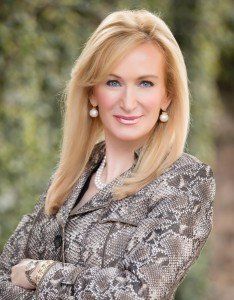CLIENT LOGIN
×RECENT NEWS
ATTORNEY MELISSA F. BROWN
BLOG SIGN UP
Blog Sign Up
We will get back to you as soon as possible.
Please try again later.
VIDEO CENTER
Watch Melissa F. Brown’s September 23, 2013 with Live 5 News
Watch Melissa F. Brown’s September 23, 2013 with Live 5 News
CENTER 4 Women: Separation & Divorce
MARTINDALE-HUBBELL AV RATING
SUPER LAWYERS RATING
The world of technology changes at break neck speed. Even Apple fans hardly have time to familiarize themselves with a new toy before another is introduced. The new technology is available even before contracts run on the previous models.
Most people today are not as concerned about keeping up with the Jones’s as they are with keeping up with the Steve Jobs’s. The problem in the legal field is that while lawyers struggle to keep up with latest and greatest technological advances, the laws addressing the use, misuse and abuse of such technology are also ever-evolving. However, the laws are not evolving at nearly the pace of technology growth. The result is that obtaining evidence through the use of technology can become dangerous both to clients and attorneys.
No one can be completely sure how old laws will apply to new technology particularly technology that few could fathom or contemplate when the laws were enacted. Lawyers and judges struggle to apply general principals of law to situations never imagined. While there are some hard and fast rules, much of this area of law remains murky and uncertain. Clients may believe their “smoking gun” e-mail will win their case, but, if a court later decides that the client obtained the e-mail illegally, the court will exclude that evidence entirely. Even worse, the client and the attorney offering the illegally obtained evidence might face civil and criminal liability for even attempting to admit such material.
In a much-publicized Ohio case, an ex-wife, Catherine Zang is currently suing her ex-husband, Joseph Zang, and his attorney, Mary Jill Donovan, for wiretapping and invasion of privacy. Catherine Zang claims her ex-husband installed monitoring devices in their home and spied on her with a hidden video camera and microphone. She alleges that he installed these secret cameras to gain leverage during their divorce proceedings. Under the federal wiretapping laws, a person may not intercept wire, oral, or electronic communications, and, under many state’s laws,unless one of the parties in the conversation is aware of the recording, the recording is illegal. This means that in so called “one party” states like South Carolina, a husband is allowed to tape his wife’s conversation only if he is also a party to the conversation. Joseph Zang under Ohio law was probably not allowed to record his wife’s conversations that were not with him, as he allegedly did. He and his lawyer are facing civil penalties up to $10,000 per taping, plus punitive damages and attorney fees. They could also be charged criminally and be fined up $250,000 and serve up to five years in jail.
The reality is that using technology to gather evidencefor potential use in during litigation is likely dangerous for both clients and their attorneys. Most technologically savvy attorneys implement electronic evidence policies that require their clients to disclose how they obtained electronic evidence before ever discussing the substance of the evidence. Such policies are designed to protect both the client and the attorney from exposure to criminal and civil liabilities.
Family law attorneys increasingly field questions such as, “I bought that computer she’s using, why don’t I have the right to read her e-mails?” or “I paid for that iPhone, why can’t I use the tracking feature to find out where she’s going after work?” “It’s our car, is it ok to put a GPS tracker on it?”
Today’s family law attorney must stay abreast of how to answer these and many other questions because spying on one’s spouse has become an unfortunate, yet common occurrence in our society especially given the readily accessible spy technology.
If you suspect your spouse, business partner or employee of wrongdoing of any sort, before you conduct your own electronic surveillance, consult with an experienced, technologically savvy attorney. Too often clients and employers make the mistake of thinking that because they are married to someone or employ someone who uses their equipment that person no longer has privacy rights. Ask for advice before you snoop to best protect yourself and to ensure that any evidence you gather can be used later in court if necessary. (Article inspired by Technology Policy written by Mark Chinn, Esquire, Jackson, MS)
Powered by
© 2021 Melissa F. Brown, LLC. All Rights Reserved.
This web site is designed for general information only. The information presented at this site should not be construed to be formal legal advice nor the formation of a lawyer/client relationship. Past success does not indicate the likelihood of success in any future representation.










